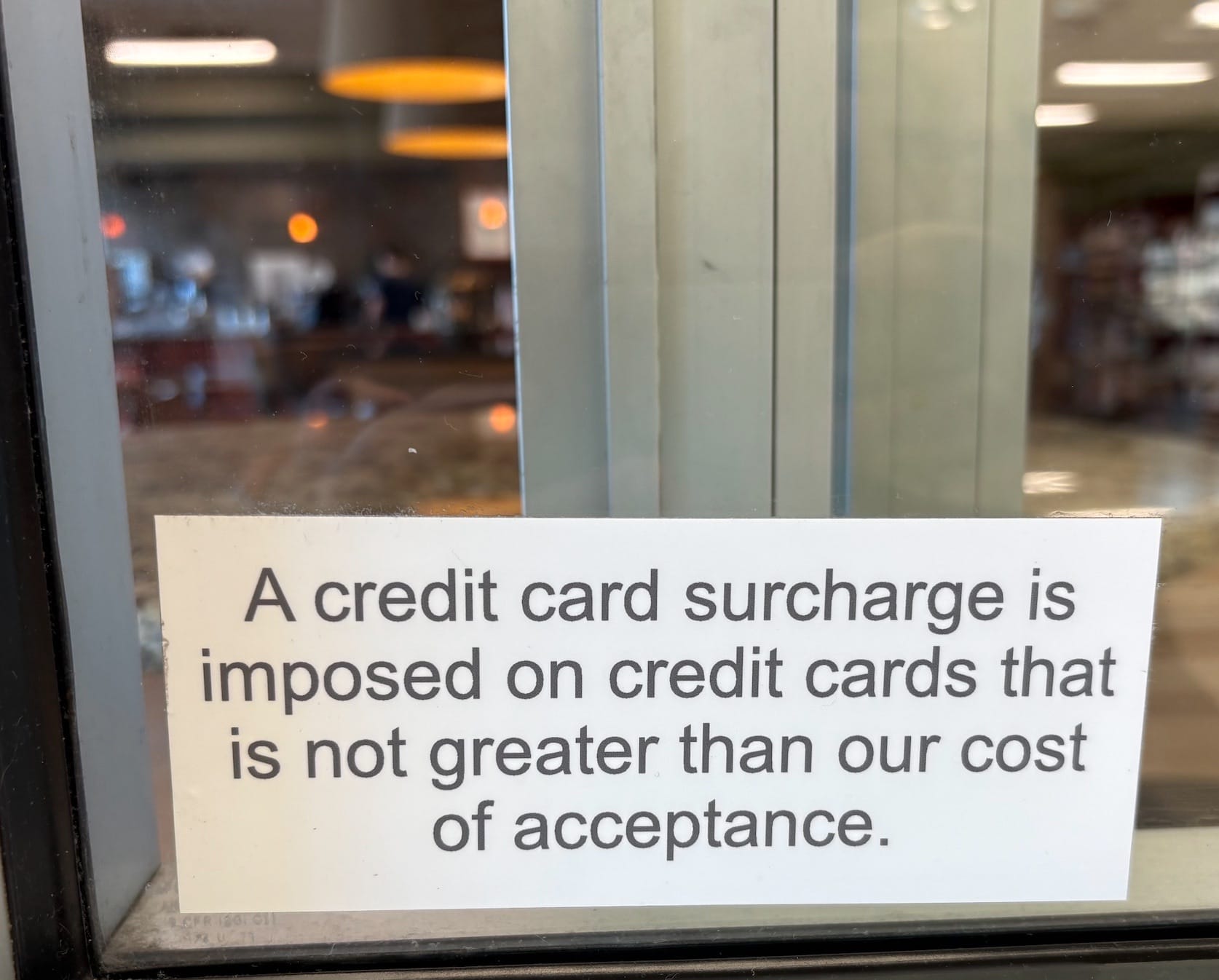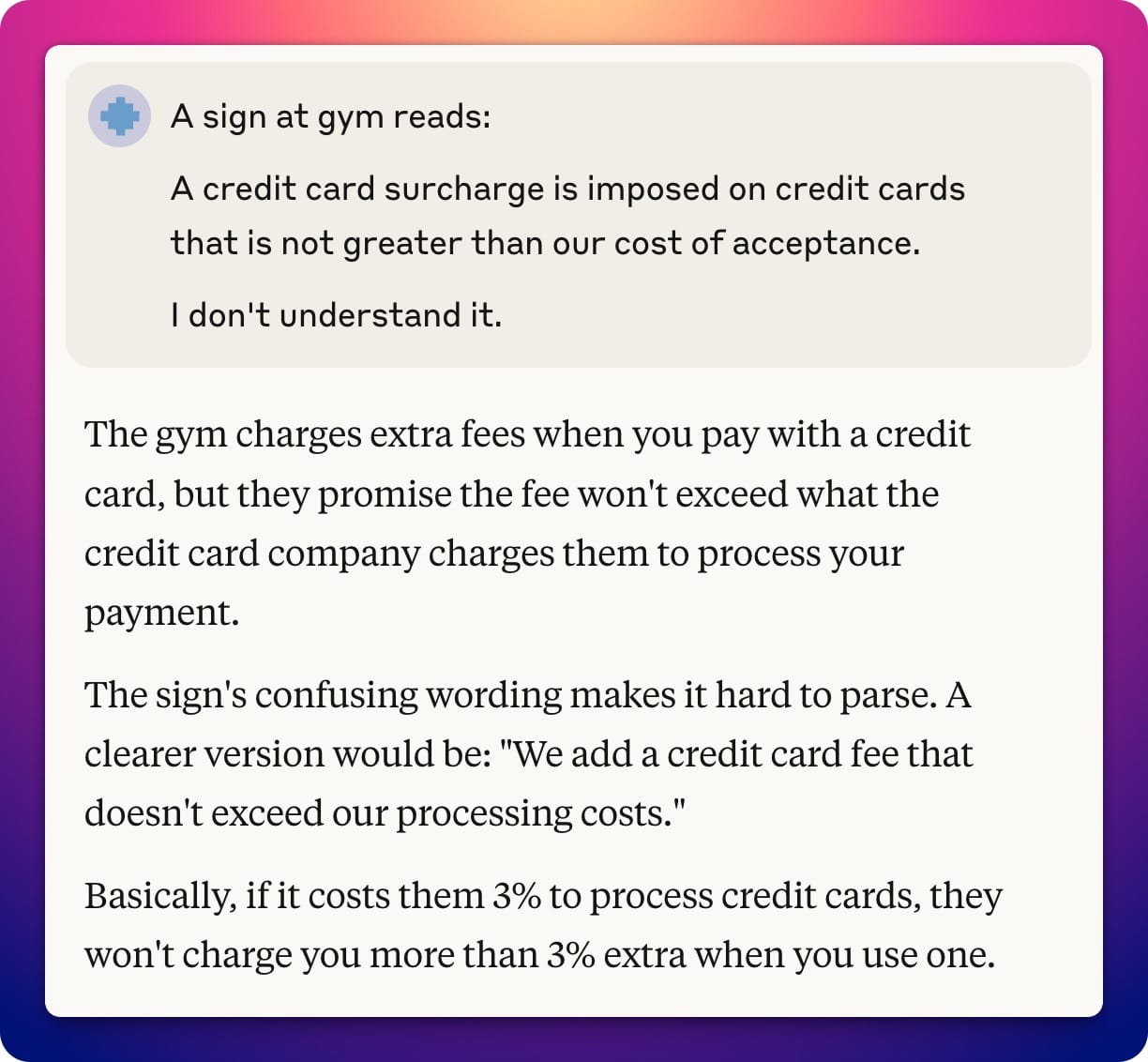Writer Sloppiness Remains Alive and Well
As a nondescript Saturday morning proved, examples of poorly written prose remain pervasive.

I will start today's post with the tiniest of flexes.
A few Saturdays back, I took my normal early-morning class. The one-hour, high-intensity session is hardcore. The instructor's routine that day included—ready for this?—double-legged donkey kicks while wearing a 12-pound vest and ankle weights. Oh, and if that's not enough, the class temperature was 95 degrees.
Not exactly what we now call active recovery. Welcome to Zone 5.
All participants walked out of the class with empty tanks. I rehydrated, showered, changed, and headed for the exit when I noticed an oddly worded sign by the cafe door. I read it and somehow summoned the energy to snap the following photo:

I lacked the mental capacity to translate that perplexing sentence at the time. My initial reaction, though, resembled the classic Office Space scene:
After getting some rest and nourishment, I think I figured it out:
The gym is passing credit card fees on to customers without any markup.
A few questions come to mind?
- Why not just write that simple sentence?
- If someone can pen a lucid book on the new world financial order, then why is it so difficult to write a few words on how credit card charges work?
Lest you think I'm overreacting, this nationally recognized isn't winning any communication awards. I noted a while back that its physical signage would have benefited from a proper copywriter, proofreader, or basic tech tool. Alternatively, its management could have simply asked a few actual gym members if they understood the sign before affixing it to the wall.

Another Writing Foul
A few hours later, I was reading an experienced tech journalist's latest Substack. (I'll keep the author's name to myself.) He has amassed a decent following. Author X wrote reasonably well and supported his assertions with data. In his 1,100-word article, he linked to exactly zero sources.
Author X's cited numbers may well have been true, but this citation sloth firmly placed the onus on the reader to play detective. Why? Ignorance? Linking to articles, studies, academic studies, and polls isn't difficult to do. (For Mac users like me, hitting ⌘ + K and then ⌘ + K gets it done.) No one needs to learn HTML to insert a hyperlink. It isn't 1993.
Let's demand more from others' writing.
Riddle me this: You've got the time to write a lengthy, well-argued post, but you're too busy to link to the sources you cite?
I commented on the post and politely asked Author X for the source for one of his stats. After not hearing back, I unsubscribed from his newsletter because he clearly doesn't respect his intelligent readers.
Commonalities
These language fouls were different and took place on different mediums. Still, they reflect a common writing malady that, sadly, remains alive and well: laziness.
In our age of AI, it's easy to run your content through a proofreading tool before publishing it. Here's what Claude said about the unfortunately worded sign:

Author X lacks my gym's financial resources. Still, an experienced, independent journo shouldn't need a reminder about the need to cite his sources, especially today.

A Clarion Call
A typo or grammatical error from a member of Generation Alpha posting on Instagram is one thing. Large organizations and professional journalists being sloppy with their printed signage is quite another.
Let's demand more from writers and the messages they put out there.
